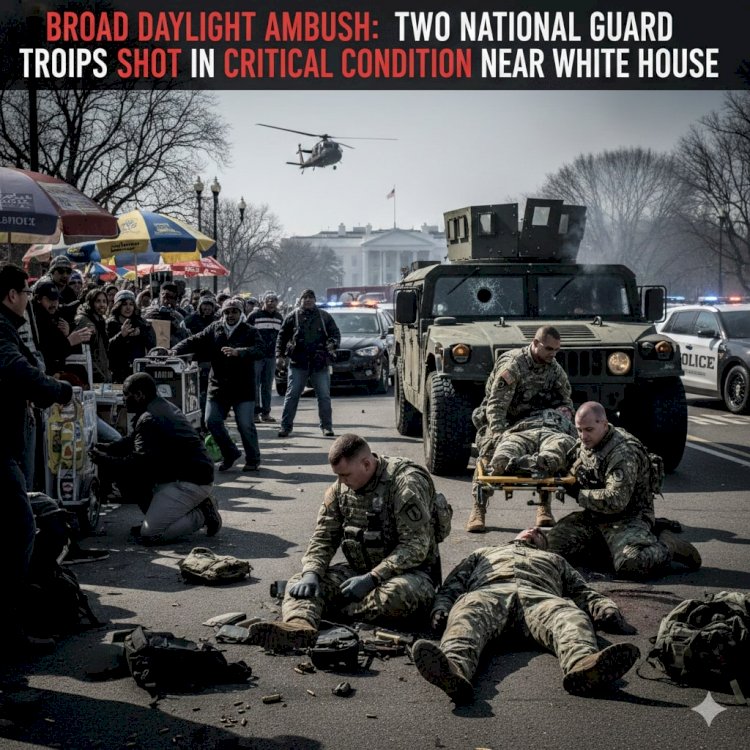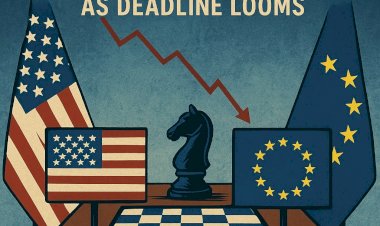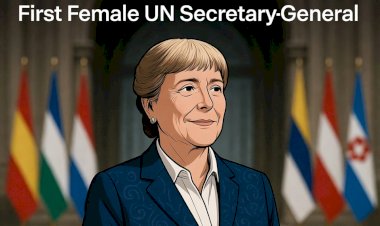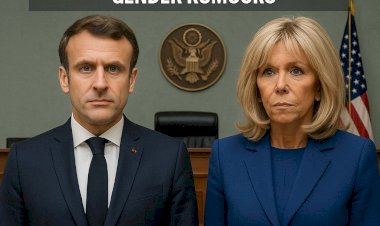Broad Daylight Ambush: Two National Guard Troops Shot in Critical Condition Near White House

Washington's streets, usually a bustle of tourists and power brokers, froze in horror on November 26, 2025, as gunfire shattered the calm near the Farragut West Metro station—just three blocks from the White House. Two members of the West Virginia National Guard, deployed as part of President Donald Trump's controversial anti-crime initiative, were ambushed in what authorities swiftly labeled a "targeted attack." The female soldier and her male colleague now cling to life in critical condition at George Washington University Hospital, their assailant—a 29-year-old Afghan asylum seeker—wounded and in custody after a frantic foot chase. As the capital braces for fallout ahead of Thanksgiving, the incident has ignited a firestorm over immigration, military deployments, and the fragile peace of a city under siege.
The Chaos Unfolds: From Routine Patrol to Rapid Response
It was around 2:45 p.m. when the shots rang out on 18th Street NW, a corridor teeming with holiday shoppers and office workers. The two Guardsmen—identified only as a 24-year-old woman and a 28-year-old man from the Mountain State—were on foot patrol, part of the 2,375-strong National Guard contingent flooding D.C. since August to combat a surge in violent crime. Executive Assistant Police Chief Jeffery Carroll recounted the horror: "The suspect came around the corner, raised his arm with a firearm, and immediately started firing at the National Guard members."
The female Guard went down first, struck in the torso and collapsing where she stood. Her partner returned fire, hitting the attacker in the leg as he fled on foot, sparking a chaotic pursuit through alleyways and into the Metro station. Bystanders scattered—Leila Christopher, 32, and her friend were en route to a holiday market when Guardsmen yelled "Run!"—as reinforcements swarmed. The suspect, Rahmanullah Lakanwal, was tackled and subdued blocks away, his 9mm handgun—loaded with just four rounds—recovered at the scene. He was rushed to Howard University Hospital in stable condition, facing federal charges of attempted murder of a federal officer.
Heroes in Uniform: The Guardsmen's Fight for Life
The victims, both combat veterans with deployments to the Middle East, underwent emergency surgeries late Wednesday. West Virginia Gov. Jim Justice, voice trembling in a briefing, hailed them as "true American patriots" and "the salt of the earth." "We're praying hard—real hard—for these two heroes," he said, noting the unit's 416-strong contingent in D.C. represents the second-largest out-of-state force after the capital's own Guard. Conflicting reports swirled overnight—one official cited "stable but serious," another "critical"—but by Thursday dawn, both remained under sedation, their families airlifted to their bedsides.
Their sacrifice underscores the human cost of Trump's "Operation Iron Fist," a sweeping deployment criticized as militarized overreach. Activated amid a 15% spike in D.C. homicides, the Guard has logged over 5,000 arrests, but at what price? "These kids signed up to serve, not to dodge bullets on K Street," fumed D.C. Mayor Muriel Bowser at a joint presser with FBI Director Kash Patel, her eyes red-rimmed. The attack's proximity to the White House—once a symbol of untouchable power—has amplified the alarm, with Secret Service agents bolstering patrols and Capitol Police on high alert.
The Suspect's Shadow: Asylum Granted, Allegiances Unknown
Lakanwal, a Kabul native who fled Taliban rule in 2021, entered the U.S. via a refugee program and was granted asylum in April 2025 under the Trump administration's streamlined vetting. DHS officials, briefing reporters off-camera, described him as a "ghost in the system"—no prior arrests, but ties to Afghan diaspora networks under scrutiny for "extremist sympathies." Sources whisper of a manifesto recovered from his phone, railing against "American occupation" and U.S. support for Israel, though motives remain murky. "This was targeted—no doubt," Carroll asserted, citing surveillance footage of Lakanwal casing the area for 20 minutes pre-attack.
The revelation has supercharged political vitriol. Trump, golfing in Florida at the time, blasted it from Truth Social as a "disgraceful failure of Biden's open borders," vowing to "deport every last migrant criminal" and requesting 500 more Guardsmen for D.C. Critics, from Senate Democrats to ACLU watchdogs, decry the politicization: "Weaponizing tragedy against immigrants won't heal these wounds," Sen. Elizabeth Warren tweeted. Afghan-American groups, reeling from the stigma, condemned the violence while pleading for nuance: "One man's actions don't define us."
Tunnel Visions: Eyewitness Terror and a City's Shaken Soul
Bystanders' accounts paint a tableau of terror. Christopher, the market-bound shopper, recalled Guardsmen shielding civilians as bullets pinged off concrete: "They yelled 'Get down!' and one took a hit right in front of me." A Metro commuter, anonymous in the frenzy, filmed the suspect's limp as officers swarmed: "He was screaming in Pashto—something about revenge." The scene, cordoned by yellow tape and floodlights, drew a somber vigil by Thursday: candles flickering near bouquets, notes reading "For our protectors."
Bowser, flanked by Patel and Carroll, vowed "swift justice" while urging calm: "D.C. is resilient—we won't let fear win." Yet the ripple effects loom: holiday markets shuttered, Metro delays, and a spike in tips to the FBI hotline. With Thanksgiving hours away, families like the victims' face hollow feasts, their loved ones' fates hanging in the balance.
Reckoning on the Potomac: Politics, Patrols, and the Path Forward
As surgeons labored through the night, the attack thrust Trump's D.C. crackdown into the glare. Activated amid a 2025 crime wave—homicides up 12% citywide—the Guard has drawn lawsuits for "unconstitutional occupation," with a federal judge dismissing challenges but leaving doors ajar. Justice, the governor, defended his troops: "They're here to keep the peace, not make it." But with Lakanwal's asylum under the same administration that now decries it, the irony stings.
Obama, in a poignant statement, offered solace: "Violence has no place in America... We're praying for these servicemembers." As dawn broke over the White House, the capital exhaled—but the wounds, physical and political, fester. For the Guardsmen fighting for breath, their battle is far from over. In a city of monuments to valor, their story etches a new chapter: one of ambush, anguish, and an unyielding quest for answers. The Potomac flows on; so must the resolve to heal.

 content-team
content-team 


















